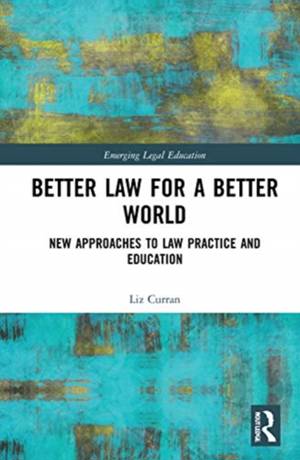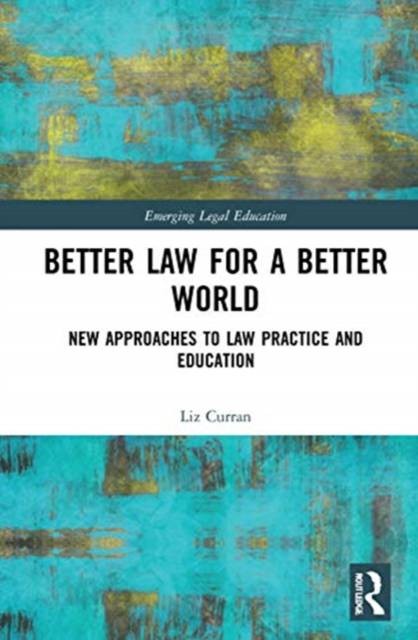
- Retrait gratuit dans votre magasin Club
- 7.000.000 titres dans notre catalogue
- Payer en toute sécurité
- Toujours un magasin près de chez vous
- Retrait gratuit dans votre magasin Club
- 7.000.0000 titres dans notre catalogue
- Payer en toute sécurité
- Toujours un magasin près de chez vous
Description
How as a society can we find ways of ensuring the people who are the most vulnerable or have little voice can avail themselves of the protection in law to improve their social, cultural, health and economic outcomes as befits civilised society?
Better Law for a Better World answers this question by looking at innovative practices and developments emerging within law practice and education and shares the skills and techniques that could lead to confidence in the law and its ability to respond. Using recent research from Australia, practice initiatives and information, the book breaks down ways for law students, legal educators and law practitioners (including judicial officers, law administrators, legislators and policy makers) to enhance access to justice and improve outcomes through new approaches to lawyering. These can include: Multi-Disciplinary Practice (including health justice partnerships); integrated justice practice; restorative practice; empowerment modes (community & professional development and policy skills); client-centred approaches and collaborative interdisciplinary practice informed by practical experience. The book contains critical information on what such practice might look like and the elements that will be required in the development of the essential skills and criteria for such practice. It seeks to open up a dialogue about how we can make the law better. This includes making the community more central to the operation of the law and improving client-centred practice so that the Rule of Law can deliver on its claims to serve, protect and ensure equality before the law. It explores practical ways that emerging lawyers can be trained differently to ensure improved communication, collaboration, problem solving, partnership and interpersonal skills. The book explores the challenges of such work. It also gives suggestions on how to reduce professional barriers and variations in practice to effectively, humanely and efficiently make a difference in people's lives.
The book builds essential skills and new approaches to lawyering for law students, legal educators, new lawyers and seasoned lawyers, judicial members and law administrators to equip them to better respond to community need. It looks at the law in context by also exploring the role of the law in improving the social determinants of health and socially just outcomes.
Spécifications
Parties prenantes
- Auteur(s) :
- Editeur:
Contenu
- Nombre de pages :
- 314
- Langue:
- Anglais
- Collection :
Caractéristiques
- EAN:
- 9780367180423
- Date de parution :
- 20-04-21
- Format:
- Livre relié
- Format numérique:
- Genaaid
- Dimensions :
- 156 mm x 234 mm
- Poids :
- 644 g

Les avis
Nous publions uniquement les avis qui respectent les conditions requises. Consultez nos conditions pour les avis.






